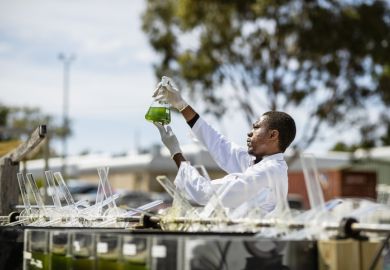The call came in a “consensus statement” agreed following a high-level summit on research misconduct earlier this year, organised by the British Medical Journal and the Committee on Publication Ethics and attended by a variety of senior figures from journals, funders and institutions.
The consensus statement (http://bit.ly/w6C5NB) says primary responsibility for research conduct lies with individuals, but institutions also have “direct responsibility” and funders have a duty to hold them to account.
The statement says funders should require institutions to designate a senior figure as a research integrity officer and to adhere to a code of conduct for research that would impose a duty on researchers to report misconduct and on institutions to protect whistleblowers.
The statement also says institutions should be obliged to conduct “proper investigations” into allegations of misconduct, and to report the results to a “national advisory and oversight body” such as the UKRIO.
The UKRIO was set up in 2006 within Universities UK, with funding from Department of Health, the Wellcome Trust, and the UK research and funding councils.
However, funding was cut at the end of 2010. UUK and funders are currently finalising a “concordat” on research integrity, to which institutions would be expected to sign up.
The UKRIO has continued to operate with funding from voluntary “subscribers”. But the consensus statement says all institutions should be compelled to subscribe.
“The advisory, support, and oversight roles of UKRIO should be enhanced, and it should be properly and securely financed,” the document says.
Michael Farthing, vice-chair of UKRIO and vice-chancellor of the University of Sussex, said: “UKRIO is the only body in this country which offers dedicated support to the research community and the public on issues of research integrity. We are committed to working with other organisations that take these responsibilities seriously.
“I am delighted the consensus statement calls for our role to be enhanced and we look forward to exploring with the research community, funders and regulators how this might be taken forward.”
Register to continue
Why register?
- Registration is free and only takes a moment
- Once registered, you can read 3 articles a month
- Sign up for our newsletter
Subscribe
Or subscribe for unlimited access to:
- Unlimited access to news, views, insights & reviews
- Digital editions
- Digital access to THE’s university and college rankings analysis
Already registered or a current subscriber?



